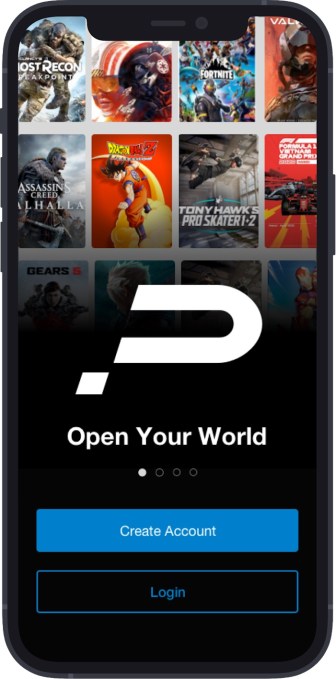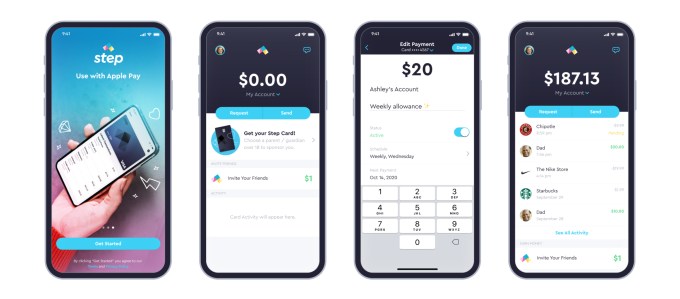Facebook announced last week an expanded partnership with streaming music service Spotify that would bring a new way to listen to music or podcasts directly within Facebook’s app, which it called Project Boombox. Today, the companies are rolling out this integration via a new “miniplayer” experience that will allow Facebook users to stream from Spotify through the Facebook app on iOS or Android. The feature will be available to both free Spotify users and Premium subscribers.
The miniplayer itself is an extension of the social sharing option already supported within Spotify’s app. Now, when Spotify users are listening to content they want to share to Facebook, they’ll be able to tap the existing “Share” menu (the three dot-menu at the upper right of the screen) and then tap either “Facebook” or “Facebook News Feed.”
When a user posts an individual track or podcast episode to Facebook through this sharing feature, the post will now display in a new miniplayer that allows other people who come across their post to also play the content as they continue to scroll, or reshare it. (Cue MySpace vibes!)
Spotify’s paid subscribers will be able to access full playback, the company says. Free users, meanwhile, will be able to hear the full shared track, not a clip . But afterwards, they’ll continue to listen to ad-supported content on Shuffle mode, just as they would in Spotify’s own app.
One important thing to note here about all this works is that the integration allows the music or podcast content to actually play from within the Spotify app. When a user presses play on the miniplayer, an app switch takes place so the user can log into Spotify. The miniplayer activates and controls the launch and playback in the Spotify app — which is how the playback is able continue even as the user scrolls on Facebook or if they minimize the Facebook app altogether.
This setup means users will need to have the Spotify mobile app installed on their phone and a Spotify account for the miniplayer to work. For first-time Spotify users, they’ll have to sign up for a free account in order to listen to the music shared via the miniplayer.
Spotify notes that it’s not possible to sign up for a paid account through the mini-player experience itself, so there’s no revenue share with Facebook on new subscriptions. (Users have to download the Spotify app and sign up for Paid accounts from there if they want to upgrade.)
The partnership allows Spotify to leverage Facebook’s reach to gain distribution and to drive both sign-ups and repeat usage of its app just as the Covid bump to subscriber growth may be wearing off. However, it’s still responsible for the royalties paid on streams, just as it was before, the company told TechCrunch, because its app is the one actually doing the streaming. It’s also fully in charge of the music catalog and audio ads that play alongside the content.
For Facebook, this deal means it now has a valuable tool to keep users spending time on its site — a metric that has been declining over the years, reports have indicated.
Spotify and Facebook have a long history of working together on music efforts. Facebook back in 2011 had been planning an update that would allow music subscription users to engage with music directly on Facebook, much like this. But those plans were later dialed back, possibly over music rights’ or technical issues. Spotify had also been one of the first media partners on Facebook’s ticker, which would show you in real-time what friends were up to on Facebook and other services. And Spotify had once offered Facebook Login as the default for its mobile app. Today, as it has for years, Spotify users on the desktop can see what their Facebook friends are streaming on its app, thanks to social networking integrations.
The timing for this renewed and extended partnership is interesting. Now, both Facebook and Spotify have a mutual enemy with Apple, whose privacy-focused changes are impacting Facebook’s ad business and whose investments in Apple Music and Podcasts are a threat to Spotify. As Facebook’s own music efforts in more recent years have shifted towards partnership efforts — like music video integrations enabled by music label agreements — it makes sense that it would turn to a partner like Spotify to power a new streaming feature that supports Facebook’s broader efforts around monetizable tools and services aimed at the creator economy.
The miniplayer feature had been tested in non-U.S. markets, Mexico and Thailand, ahead of its broader global launch today.
In addition to the U.S., the integration is fully rolling out to users in Argentina, Australia, Bolivia, Brazil, Canada, Chile, Colombia, Costa Rica, Dominican Republic, Ecuador, El Salvador, Guatemala, Honduras, Indonesia, Israel, Japan, Malaysia, Mexico, New Zealand, Nicaragua, Panama, Paraguay, Peru, South Africa, Thailand, and Uruguay.
from RSSMix.com Mix ID 8176981
https://techcrunch.com/2021/04/26/facebook-introduces-a-new-miniplayer-that-streams-spotify-within-the-facebook-app/
http://www.gadgetscompared.com
from Tumblr https://ikonografico.tumblr.com/post/649543719126695936
via
http://www.gadgetscompared.com






